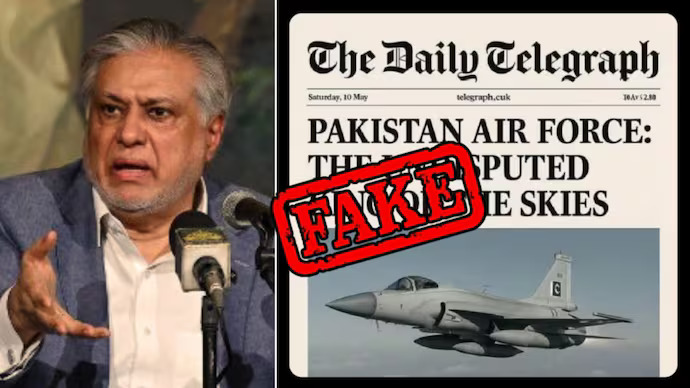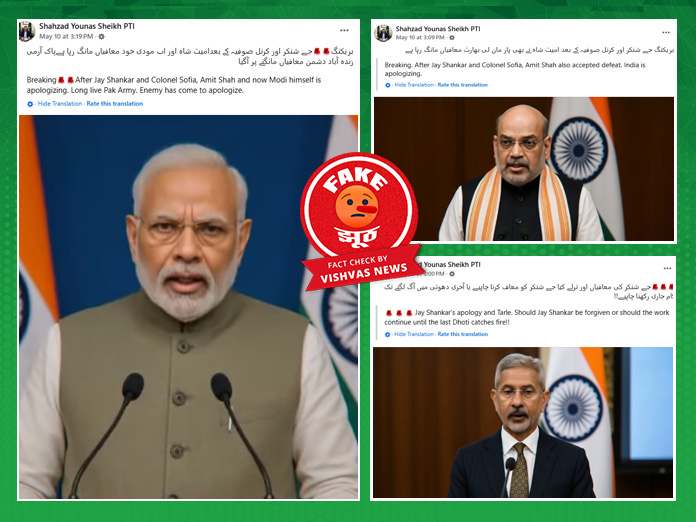Pakistan, May 16, 2025 — In a moment of significant embarrassment for the Pakistani government, Deputy Prime Minister Ishaq Dar recently cited a fabricated news headline while addressing the Senate. The quote, supposedly from the front page of the British newspaper The Daily Telegraph, was found to be part of a wider disinformation effort originating within Pakistan itself.
While speaking on May 15 about the ongoing tensions between India and Pakistan, Dar, who also serves as Pakistan’s foreign minister, lauded the Pakistan Air Force (PAF) by saying, “Telegraph writes, Pakistan Air Force is the undisputed king of the skies.” The comment was based on an image of what appeared to be the Daily Telegraph front page dated May 10, which included the same headline alongside a picture of a JF-17 fighter jet.
However, fact-checking revealed the truth: the image had been digitally altered. The actual front page of the Daily Telegraph on May 10 carried an entirely different headline unrelated to Pakistan or its air force. It focused on a resignation scandal involving the UK Navy chief and made no mention of the PAF.
The altered image, circulated widely by pro-Pakistan social media users, had even been shared by a blue-tick X (formerly Twitter) account claiming to represent Pakistan’s military media wing, the Inter-Services Public Relations (ISPR). The account, believed to be impersonating ISPR’s Director General Lt. Gen. Ahmed Sharif Chaudhry, has since been suspended, and its post flagged as AI-generated and inauthentic.
The spread of this manipulated content appears to be part of a broader propaganda push by Pakistan following India’s recent military action under ‘Operation Sindoor’, which targeted terrorist camps across the border in Pakistan and Pakistan-occupied Kashmir on May 7. In the aftermath, Pakistani authorities and social media influencers have been accused of using doctored videos and headlines to boost public morale and counter India’s narrative.
Ironically, while the misinformation aimed to portray Pakistan in a position of strength, it was the country’s own deputy prime minister who inadvertently exposed the campaign’s credibility issues by falling for the fake content himself. What made the situation more striking is that it wasn’t just Indian outlets calling out the deception—Pakistani media, including Dawn, conducted independent fact-checks and confirmed the falsity of the headline Dar quoted.
India’s Press Information Bureau (PIB) also commented on the incident, stating on X that the false claim had been “amplified” by an official figure, giving it undue legitimacy.
The episode underscores the risks of relying on unverified digital content, especially in high-stakes political discussions. It also serves as a cautionary tale for governments about the unintended consequences of engaging in or endorsing disinformation campaigns. In this case, Pakistan’s attempt to shape global perception backfired at home, leaving one of its top leaders red-faced.



